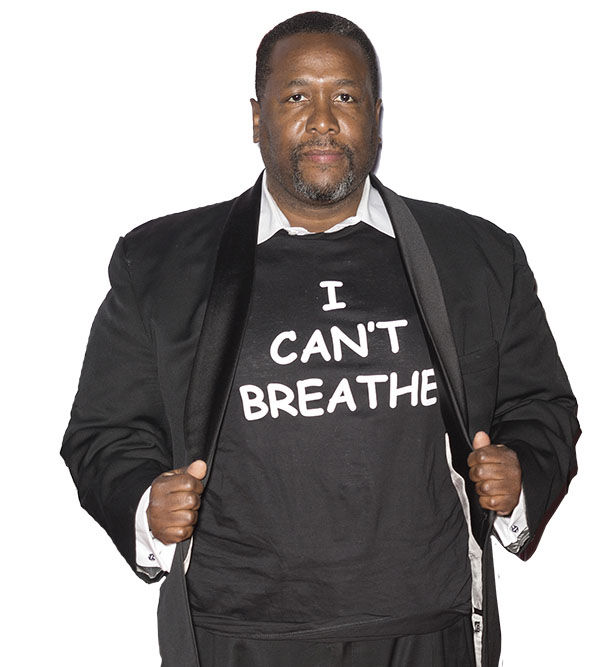As a former cast member of the classic HBO series “The Wire” — considered by many critics to be the best TV series of all time — Wendell Pierce knows the feeling of being involved in a project that is as important as it is entertaining. But as one of the stars of the current movie “Selma,” which depicts the historic civil rights march led by Dr. Martin Luther King from Selma to Montgomery, Ala., he believes he’s in a project that can have an impact on America’s current troubled state of race relations.
Playing Hosea Williams, a member of King’s inner circle, Pierce had to reenact the shocking violence unleashed upon African-Americans during those marches. But he also saw firsthand that the times have changed in the heart of the Deep South, where the movie’s events take place.
“I’m actually from the South, so going there to act didn’t have as much impact on me as others,” says Pierce, who lives in New Orleans. “This is a historic film and a contemporary film. The issues they dealt with that day are still the issues we have now. It’s not something to be seen as a part of some distant past, and that’s a very important thing to know when you see it.
“But going back, you realize how many people were involved in it, how people came together from all walks of life to be a part of the march,” Pierce continues. “It was not happenstance, it was important to show it was a conscious effort, a strategized plan, and that was a tribute to MLK and his lieutenants.”
Pierce’s portrayal of Williams brings to life a key player in the civil rights movement who is often overlooked, despite Williams’ own illustrious history as an ordained minister, businessman, philanthropist, scientist and politician. In fact, King relied on Williams to organize the mass nonviolent protest that the movement became famous for, and Williams was seen as King’s chief field lieutenant.
“I was just offered the role and honored to get the call from [director] Ava Duvernay wanting me to take the part,” Pierce recalls. “I was familiar with him, because he was such a strong leader in his own right in Savannah and Atlanta, and his legacy continues with his non-profit food program there. I also knew that iconic image we all know from Selma of [King ally and current U.S.congressman ] John Lewis standing with Hosea Williams on the bridge in front of a line of Alabama state troopers.”
Thrust into a role of a spiritually driven man seeking change, lifelong Catholic Pierce could relate to the struggles that King and his inner circle faced as they balanced their noblest intentions with their tendency to fall into moments of doubt.
“I’m a man who struggles with his faith, so much so that I took the name of Thomas as my confirmation name in the hopes that my doubts are cleared as fully as his were,” says Pierce. “These were men and women of faith, and they were working under the shadow of death at all times. They knew someone would die because of the climate of the country and they illustrated how powerful faith can be.
“Many Catholics were involved,” he continues. “If you live by the tenets of our faith, you should help be loving, caring and giving, and reach out to others. Many times in the past we’ve fallen short. It’s divine timing this movie is coming out now, at a time when Pope Francis is giving so many examples of how that should be done.”
Ultimately, Pierce feels that “Selma” can provide viewers with a blueprint for how the protests of today from Ferguson to Staten Island and beyond should be conducted. In particular, Pierce notes that the shooting of policemen in New York City by crazed lone gunmen trying to hijack the nobler, broader protests against police brutality are particularly distressing and in need of a better example.
“Absolutely. It’s a blueprint for what advocacy is about and how things get done,” says Pierce. “The assassination of those police officers is so abhorrent. People have come together, we’ve learned from the legacy of the past to do it properly. Millions are marching peacefully, understanding the power of that, and we won’t let this one crazed gunman co-opt our message. This outreach of nonviolence and civic advocacy is a blueprint and a reminder of how to be fully American and exercise your right of self-determination and make a change in the rights that you want to see perpetuated. This movie speaks to people today in the same way those events did then.”

